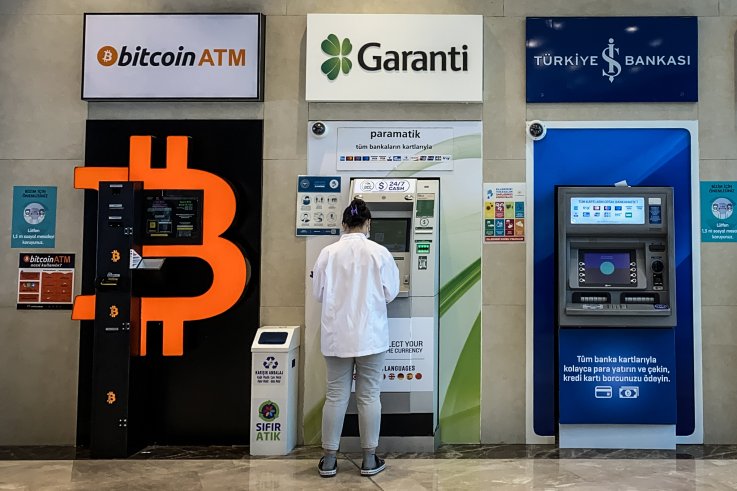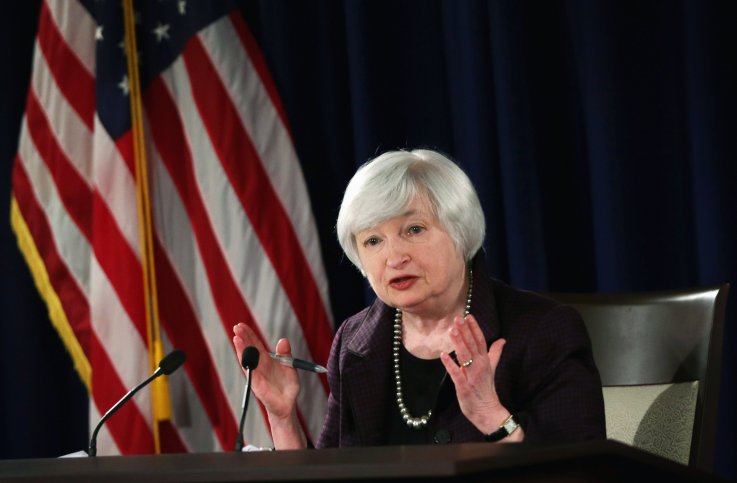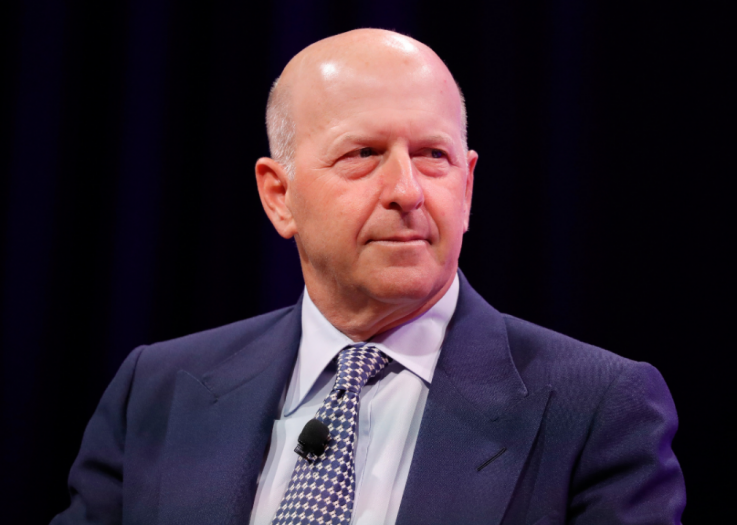Bitcoin Headed Up Despite Recent Setbacks, Expert Says
Bitcoin appears poised to climb higher despite a recent downturn and sluggish trading in a narrow range, an analyst believes.
Bitcoin's funding rates, or the periodic payments based on the spread between derivative contracts and spot prices, have remained low and suggest the market is set to advance.
"The fact that rates stayed low for an extended period of time ensured that we are in a price discovery phase," Lennard Neo, Head of Research at Stack Funds in Singapore, said in a research note. "However, we believe the continuous entanglement of the markets have emerged towards the bullish flux, as Bitcoin's upward channel remains intact."

The moving average for funding rates hit a six-month low in November 2020. In December, Bitcoin climbed from about $22,000 to $40,000, and in January rose above $57,000.
"We are expecting a similar build-up to unfold here, given altcoins robust performance over the past few weeks," Neo said. "Therefore, should a golden cross emerge in its current state, Bitcoin could likely be on a path to another high."
If technical analysis by a certified financial analyst is a bit too fine for your tastes, take heart because there's always Dogecoin.
It soared to a new high of $0.69, and is up about 37% in the last 24 hours and up about 12,000% this year, CoinDesk reported.
But the percentage gains, while whopping, are off a small base and therefore not as significant as they might seem. If Dogecoin reaches $1, it would be 0.0015% of Bitcoin's high of $64,828.
Detailed financial analysis can't explain Dogecoin's rise, but here are some theories:
Elon Musk, founder of Tesla and SpaceX, proclaimed himself "Dogefather" as his plugged his appearance this week on Saturday Night Live. If celebrity endorsements sell sneakers, why not Dogecoin? In a series of tweets, Musk has mused about Dogecoin becoming the world's currency.

Another billionaire, Dallas Mavericks owner Mark Cuban has also plugged Dogecoin in a series of tweets and said his NBA team would accept it as payment for team merchandise. The announcement received extensive press coverage. If nothing else, that's a deft way of buying publicity on the cheap. Is it any wonder Cuban is rich?
Perhaps Dogecoin's recent rise is simply a case of FOMO—Fear of Missing Out: It's rising, so many jump in, further goosing the price. Or maybe Dogecoin's soaring price is a variation of the GameStop theme—the revenge of the Little Guy.
A bunch of amateur traders beat Wall Street at its own game by driving GameStop's stock higher beyond reason and then shorting the stock to make big bucks.
Even with fractional ownership, the price of Bitcoin may be too high for many retail investors who want to get into cryptocurrency, and after looking around, stumble on Dogecoin.
Why not? Unlike Bitcoin, Dogecoin isn't a buy-and-hold asset or hedge against inflation. Bitcoin has become a long-term investment as evidenced by major companies and institutions sitting on their digital wallets stuffed with the world's top cryptocurrency.
No major Wall Street investment banks offer Dogecoin to top clients and, unlike Bitcoin, Boston-based mutual funds don't offer their clients a chance to invest in the bowser.
Dogecoin futures and options? It's unlikely the meme coin's founders ever imagined such lunacy. Which exchange would deign to handle the trades?
The number of Bitcoins is capped at 21 million, and limited supply drives the price higher. But there are now 129.33 billion Dogecoin running around.
Value investor Warren Buffett, CEO of Berkshire Hathaway, has called Bitcoin "rat poison squared," and an analyst at Deutsche Bank believes the crypto's price is based on nothing but the "Tinkerbell Effect."
It's not hard to imagine both rolling their eyes toward heaven at Dogecoin's rise.
But headline writers can have fun with Dogecoin's price run up:
Who Let The Doge Out?
Dogecoin Barks, Investors Roll Over
Will Joke Crypto Dogecoin Make Investors The Punchline?
Dogecoin Howls During Market Plunge
Dogecoin's Crash Gives Investors Fleas
A report by the Federal Reserve Bank of St. Louis said Ethereum, the world's second most popular cryptocurrency, has the potential to change banking.
Could that be an investment?
But why bother with analysis when there's Dogecoin?
In mid-day trading Wednesday, Bitcoin changed hands at $57,678.79, up 6.27% for the day and up 96.36% for the year. It has a market cap of $1.08 trillion, CoinDesk reported.
Market Pulse
U.S. Treasury Secretary Janet Yellen spooked the financial markets Tuesday when she said it might be necessary to hike interest rates to prevent the economy from overheating.

For now, it appears Armageddon has been avoided.
In mid-day trading Wednesday, all major U.S. stock indexes were up, but the yield on the benchmark 10-year Treasury bond ticked up.
"It may be that interest rates will have to rise somewhat to make sure that our economy doesn't overheat, even though the additional spending is relatively small relative to the size of the economy," Yellen said Tuesday in a pre-recorded interview released at the Atlantic's Future Economy Summit.
After stocks took a hit, Yellen quickly walked back the comment and stressed that she agreed with Fed Chairman Jerome Powell that any price increases will be temporary.
Consumer prices increased 2.6% in March and rose 1.7% in February.
Yields on long-term Treasury bonds have risen as the economy strengthens and some believe the Federal Reserve, the nation's central bank, will be forced to raise rates sooner than 2023 as now planned.
Higher rates would increase the cost of consumer credit and boost mortgage rates, but would be good news for those with bank savings accounts.
Consumer spending represents about two-thirds of the U.S. economy. The housing market is strong and prices are rising as demand in many areas exceeds the supply of existing homes.
The gross domestic product, the value of all goods and services produced in a year, jumped to a 6.4% seasonally adjusted annual rate in the first quarter. The economy is now close to its pre-pandemic peak.
New York investment bank Goldman Sachs has said it expects the economy to grow about 11% in the second quarter, one point higher than its previous estimate.

Savings increased during the pandemic in part because the COVID-19 lockdown intended to curb spread of the coronavirus made it difficult to spend at prior levels. Unemployment rose as the economy shrank.
But rising vaccination rates, a strengthening labor market and pent-up demand are likely to create a burst of consumer spending.
Some fear this could lead to inflation as a cascade of cash chases a supply of goods sometimes constricted by kinks in the supply chain.
Add to this government stimulus checks and massive new federal spending and some see persistent inflation ahead.
Since March 2020 when the pandemic slammed the economy, Congress has appropriated about $5.3 trillion in stimulus spending. The budget deficit in fiscal year 2020 climbed to about $3 trillion and is about $1.7 trillion in the red so far this year.
Larry Summers, who served as former President Bill Clinton's treasury secretary, has warned that Federal spending from the $1.9 trillion COVID-19 relief package signed into law in March could spark inflation.
Some analysts wondered if Tuesday's market dip indicated that U.S. growth is peaking while others saw it simply as an overreaction to Yellen's comment about the need to raise interest rates to curb inflation.

